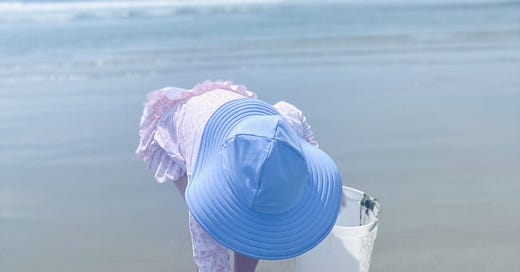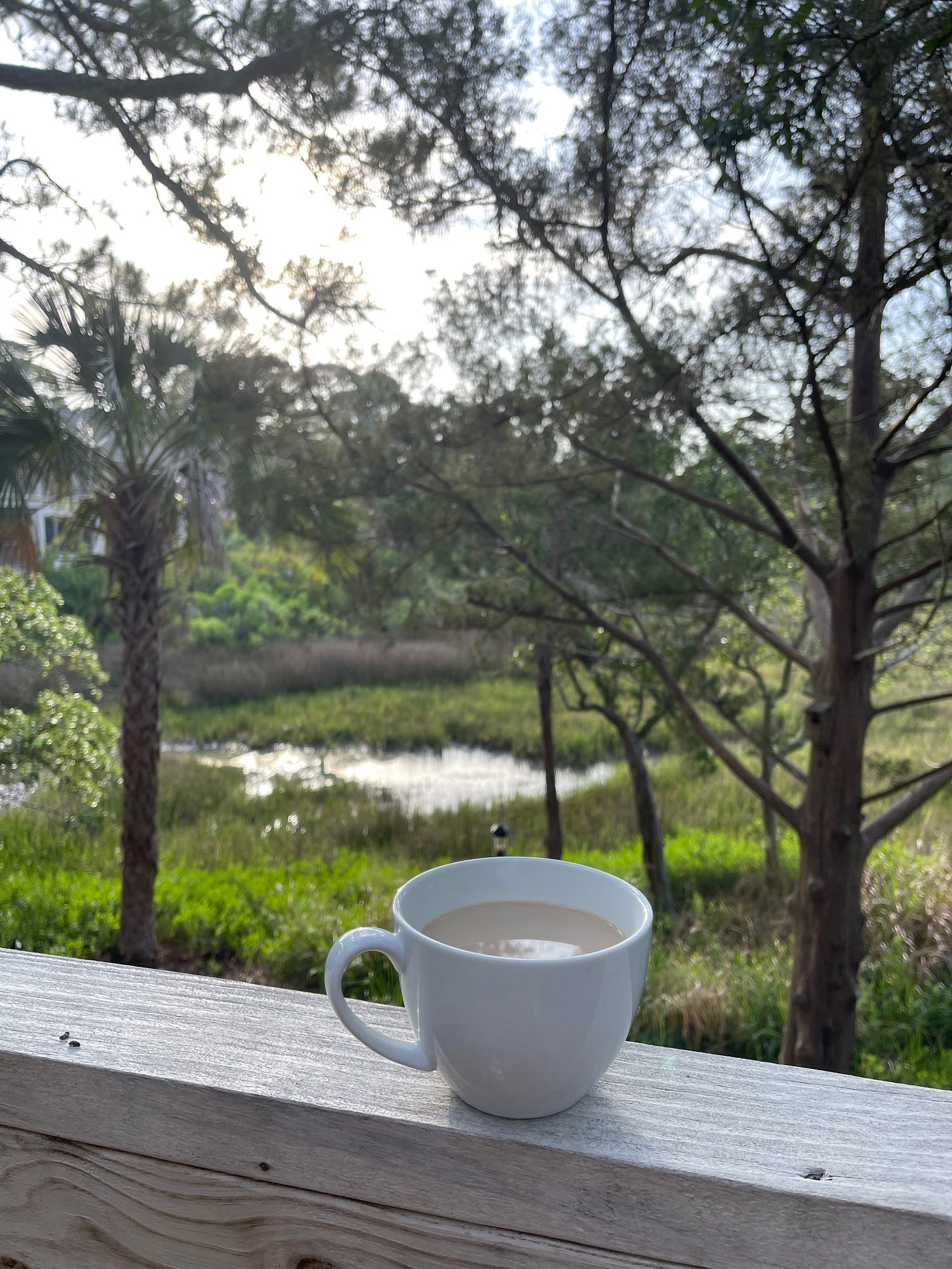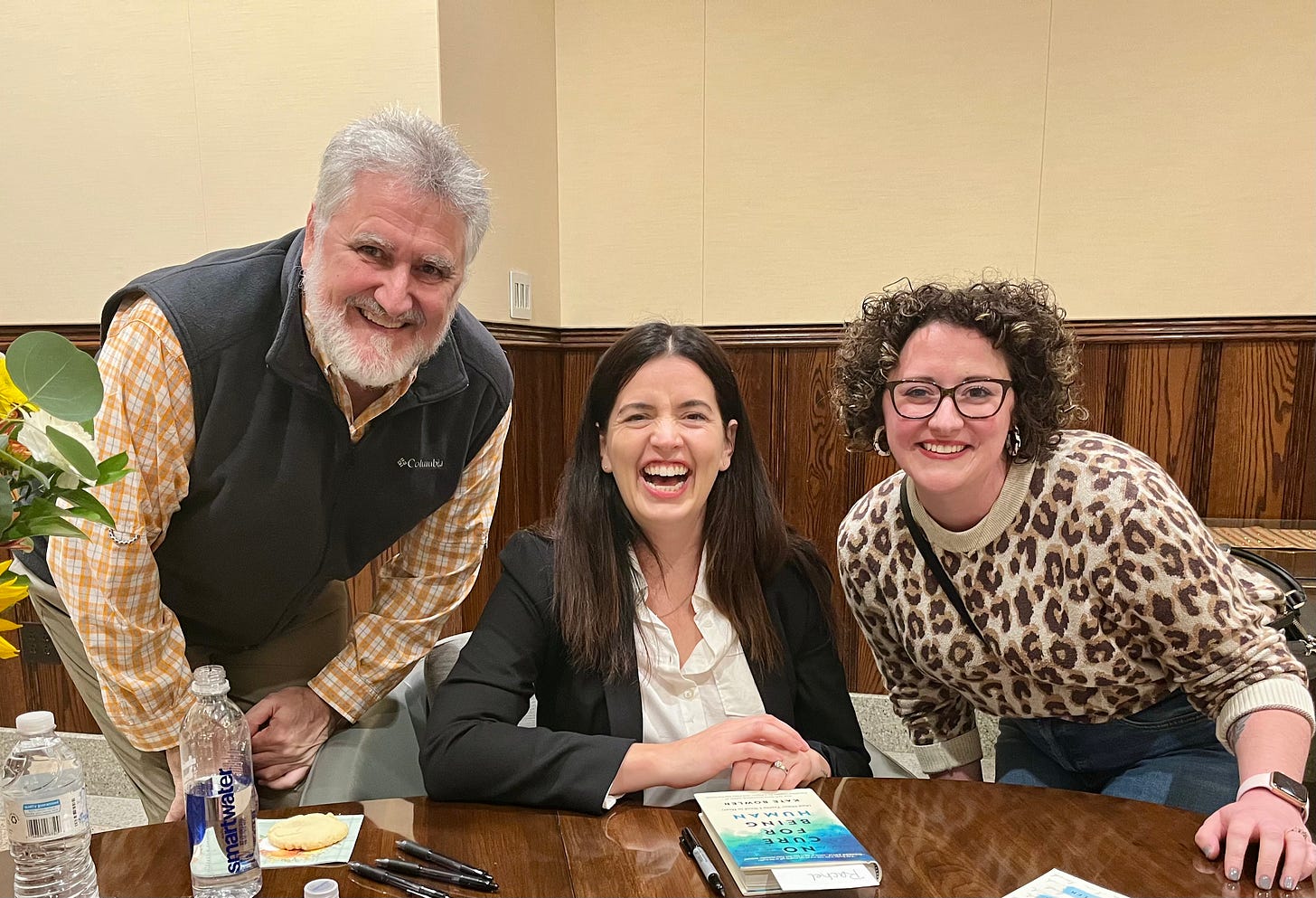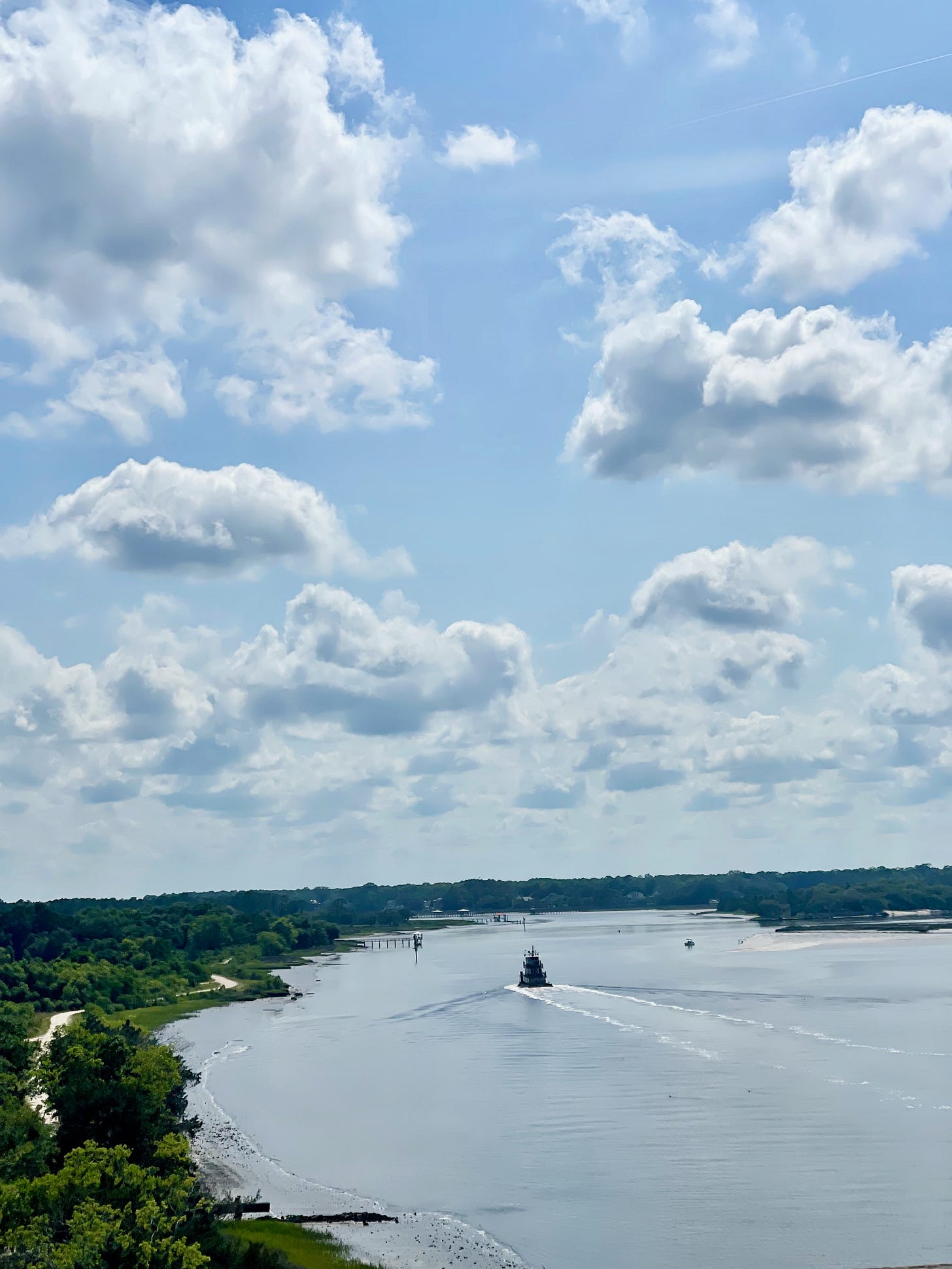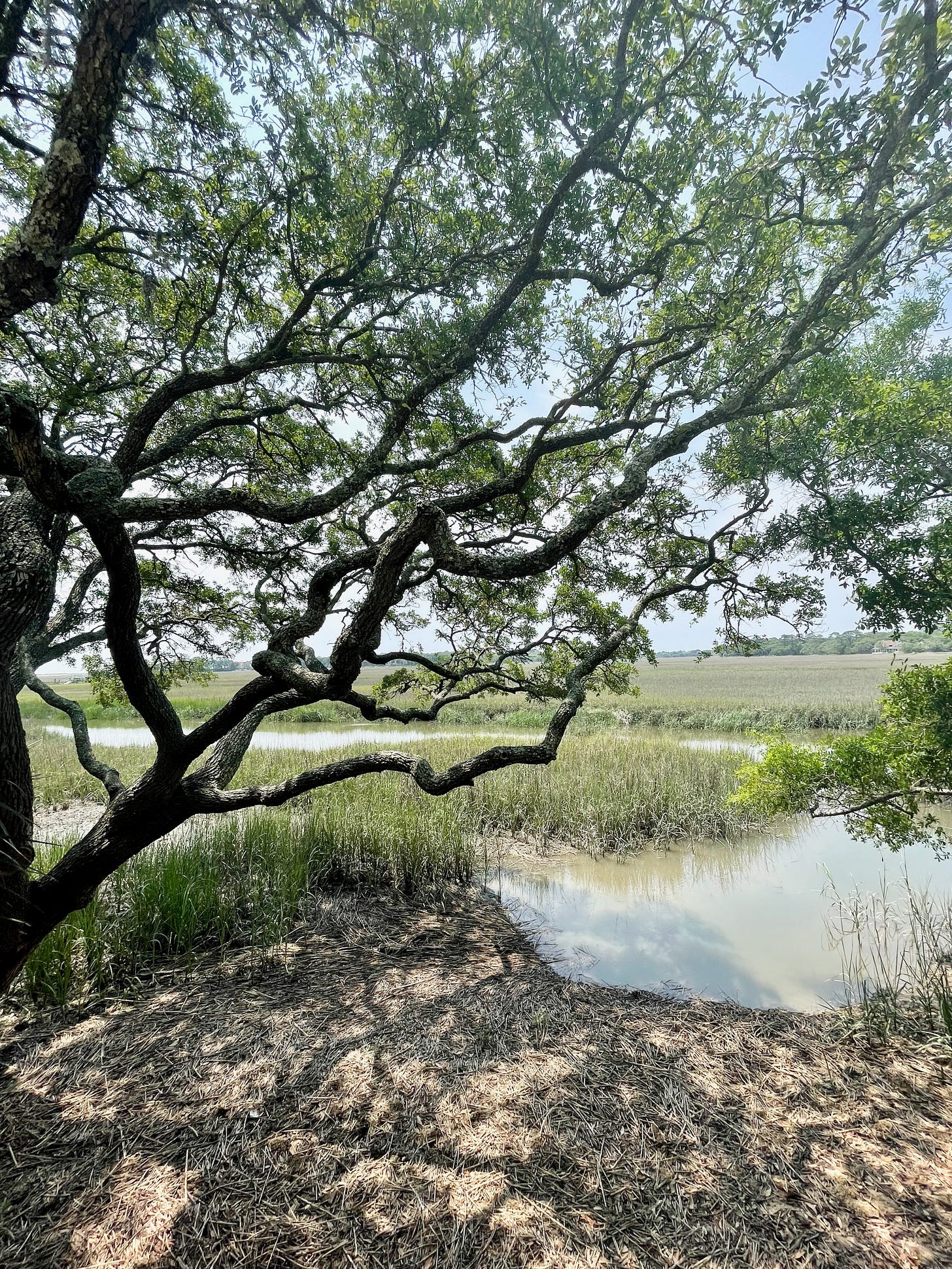RSM's Most Impactful Reads: Part III - Best Books On Being a Person in the World
Faith, embodiment, and more.
This is going to be a fun one, as this list contains the grab bag of some of my favorites on how to be a person—spanning works on faith, caring for the earth, mental & emotional health, and some Brené at her absolute best.
For the third installment of RSM’s Most Impactful Reads, I give you the following:
Everything Happens For A Reason (and other lies I’ve loved) by Kate Bowler
Braiding Sweetgrass by Robin Wall Kimmerer
Raising Worry-Free Girls by Sissy Goff
The Wisdom of Your Body by Hillary L. McBride
Atlas of the Heart by Brené Brown
Prayer in the Night by Tish Harrison Warren
Learning to Walk in the Dark by Barbara Brown Taylor
I Guess I Haven’t Learned That Yet by Shauna Niequist
Everything Happens For A Reason (and other lies I’ve loved) by Kate Bowler
I read this three years ago and still think about it constantly. She has since written another book and co-written two books of blessings (all of which I own and love), and she hosts a fantastic podcast. Kate calls bullshit on toxic positivity, prosperity gospel, and other lies wrapped up in American Christianity with brutal honesty and humor. As a researcher of the prosperity gospel, she exposes how these ideas have seeped into Christian culture—especially during times of pain. We give each other trite aphorisms (like the title of this book) without acknowledging that life on this earth is hard. I wept and cheered as she grappled with her Stage IV colon cancer diagnosis at 35, facing mortality and what she’d leave behind. Her story reminds me we’re not guaranteed a life without suffering—we’re actually assured just the opposite.
I had the opportunity to hear this amazing woman speak and meet her in Knoxville in 2022, and it was an absolute joy. She is as magnetic a speaker as she is a writer, and I experienced this with my dad, which was a sheer delight.
During this painful season of the end of my marriage, the truths in this book have been such a balm. Yesterday was our anniversary, and it was a weird day. A day that is stored in me as a celebratory day, but this year, there was nothing to celebrate. When I look at those pictures of the two young kids from 2013, a wealth of new emotions rises to the surface.
So I set about making new memories for my mind and recalling this day in a fresh way by inviting friends around the fire pit yesterday evening. I learned to build my own fire (so symbolic, right?) while we enjoyed mocktails and adult s’mores (charcuterie 🧀 + fire 🔥 = magic 🪄).
Now, when I think of June 8th, I can add watching a comet blaze across the horizon of my backyard, laughter around the fire I tended, and “hot cheese” 🤣 to the memory bank. I am reminded of Kate’s words:
“Everything is not possible. The mighty kingdom of God is not yet here. What if the rich did not have to mean wealthy, and whole did not have to mean healed? What if being a people of the Gospel meant that we are simply people with good news?
God is here.
We are loved.
It is enough.”
Amen and amen.
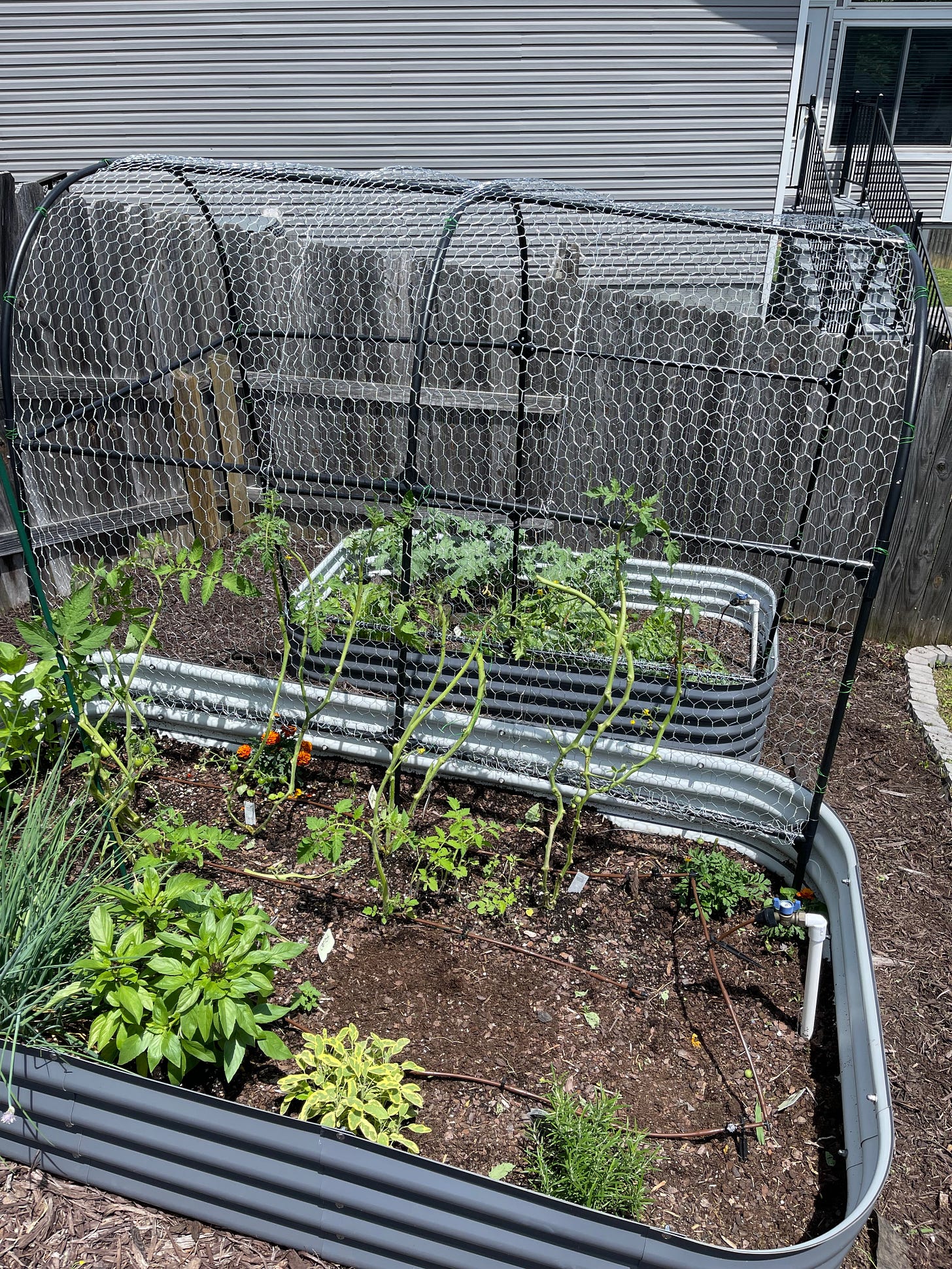
Braiding Sweetgrass by Robin Wall Kimmerer
This one makes it into my top 10 books of all time…every time someone asks.
“If grief can be a doorway to love, then let us all weep for the world we are breaking apart so we can love it back to wholeness again.”
Y'all. 👏🏻 This. 👏🏻 Book. 👏🏻 Is a revelation. Kimmerer has cultivated a collection of essays that is informative and spiritual. A Potawatomi plant biologist, she blends Indigenous tradition and wisdom with the science of living things in a way that was enrapturing from the first page to the last. From the practice of gratitude in wild strawberry picking to the interconnectedness of the Three Sisters plants, which work and grow together to feed nations, each chapter is woven layer by layer with deep truths about our humanness, alongside science and Indigenous wisdom. Kimmerer also speaks to how we have failed to respect the created world, as maples begin to dwindle in New England due to climate change, and how consumerist “Windigo” culture is destroying both the earth and us. The question she asks is “how do we consume in a way that does Justice to the lives that we take?”
She writes beautifully about the connectedness of us to earth and one another, as in an essay on mothers and children, where she likens them to water lilies. There are so many lessons in creation, if we will but slow to see them. I learned so much; this book caused me to notice my world in new ways, to ask new questions, and I am so grateful to Kimmerer for this offering.
It was impossible to land on a favorite quote from this one; I have a whole note on my phone full of them! But here are just two examples:
“A gift is also a responsibility. If the bird’s gift is song, then it has a responsibility to greet the day with music. It is the duty of birds to sing, and the rest of us receive the song as a gift… What is our gift? And how shall we use it?”
“If one tree fruits, they all fruit—there are no soloists. Not one tree in a grove, but the whole grove; not one grove in the forest, but every grove; all across the country and all across the state. The trees act not as individuals, but somehow as a collective. What we see is the power of unity. What happens to one happens to us all. We can strive together or feast together. All flourishing is mutual.”
Raising Worry-Free Girls by Sissy Goff
Whew. Sissy Goff will have my FOREVER gratitude for this book. My parenting has undergone significant changes thanks to Goff”s research and experience, and I see the fruits of those changes every day. This book and its author have:
Changed my outlook on anxiety in my daughter (and myself) in some very positive ways;
Gifted us with shared language that is both developmentally-appropriate and easy to implement in ways that remind her that she is brave, strong, & smart;
Reminded me that there are days when she will inevitably not always be those things and that life will be hard, and these are the moments when she can build resilience (which is going to serve her much better as she grows than me mowing over every problem); and
Given me ways to both support her and let her fly.
All girl mommas and dads need to read this one. May our girls grow to know who and Whose they are, and this book helped me instill these truths in my daughter. 💗
The Wisdom of Your Body by Hillary L. McBride
McBride’s work on embodiment has profoundly impacted my journey of coming home to myself. I read this in 2021 and still think about it daily (currently working through her latest workbook to put the theory into practice). She exposes how culture and harmful Christian interpretations have conditioned us toward disembodiment—disconnecting us from listening to and loving our bodies as we were created to be. Through research and clinical examples, she demonstrates how objectification, dualism, and trauma contribute to the creation of this divide early in life. McBride addresses how oppression values certain bodies over others, how emotions live in our bodies, and how we can reconcile the spirit-body divide.
Each chapter ends with reflection questions and physical practices that were goldmines for learning to “be fully connected to the body, which is about being fully alive.” McBride’s work has been a healing balm as I unlearn harmful scripts and learn to love my body for what it’s done and for simply existing and taking up space in this world.
Here are some of my favorite words from McBride:
“There are a million little resurrections waiting for us, there is healing and victory each time we notice our breathing, speak kindly to our body, or work to change a harmful pattern that was woven into our DNA long before we knew it was happening.”
Atlas of the Heart by Brené Brown
Brené’s work has profoundly changed how I see myself and others, and this book continues that journey. She maps out 87 (you read that right, EIGHTY SEVEN 🤯) emotions and experiences with tools and language I never knew existed. It’s her magnum opus—decades of research beautifully compiled into something I’ll reference forever. I love her “I’m here to get it right, not be right” approach, especially when she admits her own thinking has evolved.
This book made me sob, cheer, and sit in solemnity as I examined my own story and how vulnerability leads to connection; all we have to do is choose it. I've basically dunked this book in highlighter. Pure gold.
Because it’s Brené, there’s no one best quote, but key takeaways:
“Hope is a function of struggle—we develop hope through adversity, not comfort.”
She distinguishes between stealth and examined expectations, showing how unmet ones create disappointment.
“Gratitude lets us celebrate goodness instead of adapting to it, making us participants rather than spectators.”
There’s a difference between worry (the thinking part of anxiety) and anxiety itself.
She asks: “Do we want to infect people with anxiety, or heal with calm?”
Sadness is our most significant connection point—when you respond “me too” to someone’s pain, everything changes.
“Joy is the good mood of the soul.”
I cannot recommend this emotional primer enough for every human living in this beautiful, yet complicated, world.

Prayer in the Night by Tish Harrison Warren
This book has been evergreen in my life. I did not know how I would need this book when I began it towards the end of Lent in 2021. But as I sat in Eastertide, mourning the loss of my grandfather and pondering the possibilities and monumental work ahead in a post-pandemic world, this was the book for me.
Tish looks to the ancient Compline prayer, using it as a framework to explore human vulnerability, suffering, and God’s seeming absence. Written in the gritty aftermath of personal losses, this isn’t a book about tidy solutions—it’s about feeling less alone when we’re lying awake, worrying, or weeping. It is both a theological reflection and a practical prayer guide, offering ancient words when our own fail us.
Learning to Walk in the Dark by Barbara Brown Taylor
I am here for this woman’s thoughtful, honest, and deeply beautiful theological expression. This journey of hers to learn to love and live in the dark is simply outstanding, and exactly what my heart needed when I first read it in 2022, and still does now.
Deeply discontented with the “fuller solar spirituality” of most modern Christians, Rev. Taylor embarks on a journey into lunar spirituality. She looks to St. John of the Cross, scripture’s references to the dark, church history, and more, to answer the question of what to do with the dark. Taylor answers,
Let it in,
Let it too be your teacher.
Taylor’s is the voice I needed in my spiritual walk right now, as I learn to walk with the dark myself. I especially love this quote:
“I have learned things in the dark that I could never have learned in the light, things that have saved my life over and over again, so that there is really only one logical conclusion. I need darkness as much as I need light.”
Let it be so with me.
I Guess I Haven’t Learned That Yet by Shauna Niequist
This book gets my wholehearted recommendation to every woman I know (evidence: furious underlining, dog-eared pages, and “Yeses!” scribbled in margins). When Shauna Niequist moved her family to Manhattan and her sons came home discouraged by all the unknowns, she taped a simple phrase to their living room wall: “I guess I haven’t learned that yet.” This daily practice transformed how she viewed herself, her faith, her body, and relationships—the pressure was off when she viewed herself as a beginner, the guilt washed away. Her insights on resilience, shifting faith, practicing presence, finding enchantment in everyday moments, and living in the body we have are pure game changers. Chef’s kiss. 😘
One of my favorite chapters is called Hello to Here, where she talks about “being fully present to this here and this now, not the past or the future, not fantasies or regrets, but here.”
“For a long time, ‘hello to here’ was an easy thing to say, like throwing a party for all of the lovely parts of my life: hello, hello, hello. But all of a sudden, it was hard to say hello. It was hard to look at the reality of my life full in the face. Here was not a place I wanted to be, and certainly not a place I wanted to greet enthusiastically…
Slowly, I became brave enough: hello to here. I learned to walk through it, my steps creating a drumbeat I could trust as the pain and sorrow and anger coursed through me. To my surprise, instead of feeling overtaken, I felt cleansed…little by little, I became free and I became tender.”
In honor of this idea, I wrote my own Hello to Here…
Hello to Here by Rachel Snyder Miller
Hello to learning to sleep alone, to waking in the night and not remembering, and then remembering.
Hello to paying the bills, hello to new savings goals, hello to understanding where the dollars flow.
Hello to being in a room not of my own choosing.
Hello to playing the music I want to listen to, hello to planting the garden with the veggies I love, hello to cooking what I feel like making for dinner (or getting the Hungryroot box when I can’t plan one more thing, for realness’ sake).
Hello to shuttling our daughter between homes, hello to answering hard questions multiple times a day, hello to waking up—and in the haze of sleep—not at first remembering if she is here or there.
Hello to splitting up the assets with the guy who once vowed, “With all that I am, and all that I have, I honor you.”
Hello to being the angriest, the freest, and the bravest I’ve ever been.
Hello to being alone, but also, hello to never truly being alone. Because I am surrounded by a community that reminds me I have every right to be angry, and also, there is so much inevitable flourishing ahead.
So hello to here.
That completes my list of the most impactful books on being a human in the world. Thanks for joining me here for this special mini-series. See you in July for my favorite canonical classics.
Cheers from my shelves to yours,
RSM


